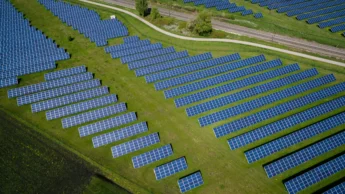In an era when the urgency of renewable energy sources is becoming increasingly prominent, bioenergy takes centre stage as a promising and environmentally friendly solution. This renewable form of energy, derived from biological sources such as plants, offers a range of possibilities for reducing our dependence on fossil fuels and limiting the impact on the environment.
In this blog, we dive deeper into the world of bio-energy. From understanding the basics to exploring the benefits and challenges, to exploring the prospects for the future and the specific role bio-energy plays in the Netherlands.
Do you want your innovation to make it easier to meet ESG targets? Would you like to develop your idea in collaboration with Beeliners? We would love to help you! Feel free to drop by for a cup of coffee and we will be happy to discuss the possibilities with you.
What is bio-energy and how does it work?
Bio-energy is energy derived from biological sources, such as plants and organic matter. It is a form of renewable energy because it comes from natural sources that can be replenished naturally, such as crops, agricultural residues, wood and organic waste.
Bio-energy can be obtained through various processes, including:
- Biomass burning: The burning of organic material, such as wood or agricultural waste, to produce heat or electricity.
- Biogas production: Anaerobic decomposition of organic material, such as animal manure, sewage sludge or food waste, to produce biogas, which can be used for heating, electricity generation or as fuel for vehicles.
- Production of biofuels: Conversion of biomass into liquid fuels, such as ethanol or biodiesel, which can be used as substitutes for fossil fuels in transport.
Bio-energy is considered a promising alternative to fossil fuels because it can help reduce greenhouse gas emissions, promote energy independence and support rural development by creating new markets for agricultural products and residues. However, it also has some environmental and social challenges, such as competition with food production, land use conflicts and potential impacts on biodiversity and ecosystem services. It is therefore important to carefully manage bio-energy production and use to maximise benefits and minimise negative impacts.

Advantages of bio-energy
Bio-energy offers a range of benefits that make it attractive as a renewable energy source. Here are some of the key benefits:
- Renewability: Bio-energy is produced from biological sources, such as crops, wood and organic waste, which can be continuously replenished by natural processes such as photosynthesis and waste fermentation. This makes bio-energy a renewable energy source, unlike fossil fuels such as coal, oil and gas.
- Reducing greenhouse gas emissions: Burning biomass for energy production generally results in lower emissions of greenhouse gases, such as carbon dioxide (CO2), compared to fossil fuels. Because plants absorb CO2 from the atmosphere as they grow, burning biomass releases only the CO2 that was previously absorbed. As a result, bio-energy helps reduce net greenhouse gas emissions and combat climate change.
- Diversity of feedstocks: Bio-energy can be produced from a wide range of biological materials, including crops, agricultural waste, wood waste, organic waste and even algae. This diversity of feedstocks reduces dependence on a single source and provides flexibility in energy production.
- Economic benefits: Bio-energy can create economic opportunities by boosting the agriculture and forestry sectors, creating jobs in biomass production and distribution, and supporting local communities. It can also help reduce energy dependence on imports of fossil fuels, making energy prices more stable.
- Waste management: Bio-energy offers a sustainable solution for managing organic waste, such as food waste, green waste and animal manure. By converting these materials into energy, they can be recycled and reduce the need for landfills, thus preventing environmental pollution.
In short, bio-energy is a versatile and sustainable energy source with significant climate change, economic and waste management benefits. With the right policies and technological developments, bioenergy can play an important role in the transition to a more sustainable energy supply.
Disadvantages of bio-energy
While bio-energy offers several advantages, there are also some drawbacks and challenges associated with its use:
- Competition with food production: Growing crops for bio-energy can lead to competition with food crops, which can lead to higher food prices and food insecurity, especially in developing countries. This can lead to conflicts between food and energy production.
- Land use and biodiversity: Intensive use of land for biomass production can lead to deforestation, habitat loss and biodiversity degradation. It is important to ensure that biomass production is not at the expense of valuable ecosystems and biodiversity.
- Impact on water resources: Some forms of bio-energy production, such as growing crops for biofuels, can lead to increased water consumption and water pollution through the use of fertilisers and pesticides. This can have negative impacts on the availability and quality of water resources.
- Net greenhouse gas emissions: Although bio-energy is generally considered a low-carbon energy source, some forms of bio-energy production, such as wood burning, may temporarily lead to a net increase in greenhouse gas emissions, especially if the sources are not managed sustainably.
- Efficiency and technological challenges: Some bio-energy processes, such as the conversion of biomass to biofuels, still face technological limitations and inefficiencies, which may hinder their scale-up and cost-effectiveness.
- Environmental impacts of biofuels: Although biofuels such as biodiesel and ethanol are produced from renewable resources, they can still have environmental impacts, such as land-use change, deforestation and changes in land-use practices that can lead to higher greenhouse gas emissions.
It is important to address these disadvantages and challenges through policy measures, technological innovations and sustainable management practices to maximise the potential benefits of bio-energy and minimise the negative impacts.
Future of bio-energy
The future of bio-energy promises to be a dynamic evolution, characterised by ongoing technological innovations, increasing sustainability requirements and growing integration with other energy sectors. With advances in biomass conversion technologies, stricter environmental regulations and greater emphasis on circular economy principles, bio-energy is expected to play a crucial role in the transition to a more sustainable energy supply.
By integrating bio-energy with other renewable energy sources, promoting waste management and recycling, and fostering international cooperation and policies, bioenergy has the potential to support a resilient and low-carbon energy future, contributing to global efforts to combat climate change and ensure energy security.
Bio-energy in the Netherlands
In the Netherlands, bio-energy has gained a prominent position in the pursuit of a sustainable energy supply. With a long tradition of agricultural activities and a strong focus on environmental awareness, the Netherlands has developed a diverse bio-energy sector using various sources, including biomass, waste and biogas.
The Dutch government has set ambitious targets for increasing the share of renewable energy, so bio-energy plays an important role in achieving these targets. Innovations in biomass conversion technologies, such as fermentation and pyrolysis, are actively encouraged, while sustainability standards and certification systems help ensure that bio-energy production meets high environmental standards.
With a growing focus on circular economy principles, waste management and carbon reduction, bio-energy is expected to continue to contribute to making the Netherlands’ energy supply more sustainable, while creating economic opportunities and reducing dependence on fossil fuels.
Working on your ESG-innovation together with Beeliners
Do you have a good idea for a product, service, process or technological innovation that makes it easier to achieve ESG goals? And would you like to develop your idea in collaboration with Beeliners? Beeliners has an innovation cell dedicated to innovations in energy and heating systems. Feel free to drop by for a cup of coffee and we will be happy to discuss the possibilities with you.
Also interesting
-

How will the production of green gas be encouraged?
In an era when the world is paying increasing attention to renewable energy sources, green gas is a promising alternative that has the potential to reduce our dependence on fossil fuels. Green gas, also known as biomethane, is produced from organic material such as green waste, sewage sludge, or even… Read More
-

This will encourage the use of renewable energy
In a world where the calls for sustainability and environmental awareness are getting louder, the use of renewable energy sources is central to the fight against climate change. While individual efforts by citizens and businesses play an important role, a crucial responsibility rests on governments worldwide to accelerate the transition… Read More
-

Using more renewable energy, 7 innovations
The energy transition is in full swing. We are switching to renewable energy sources, such as solar and wind, to keep our planet livable. But how do we make this switch smoothly and efficiently? The key lies in innovation. In this blog, we discuss various innovations that make renewable energy… Read More

